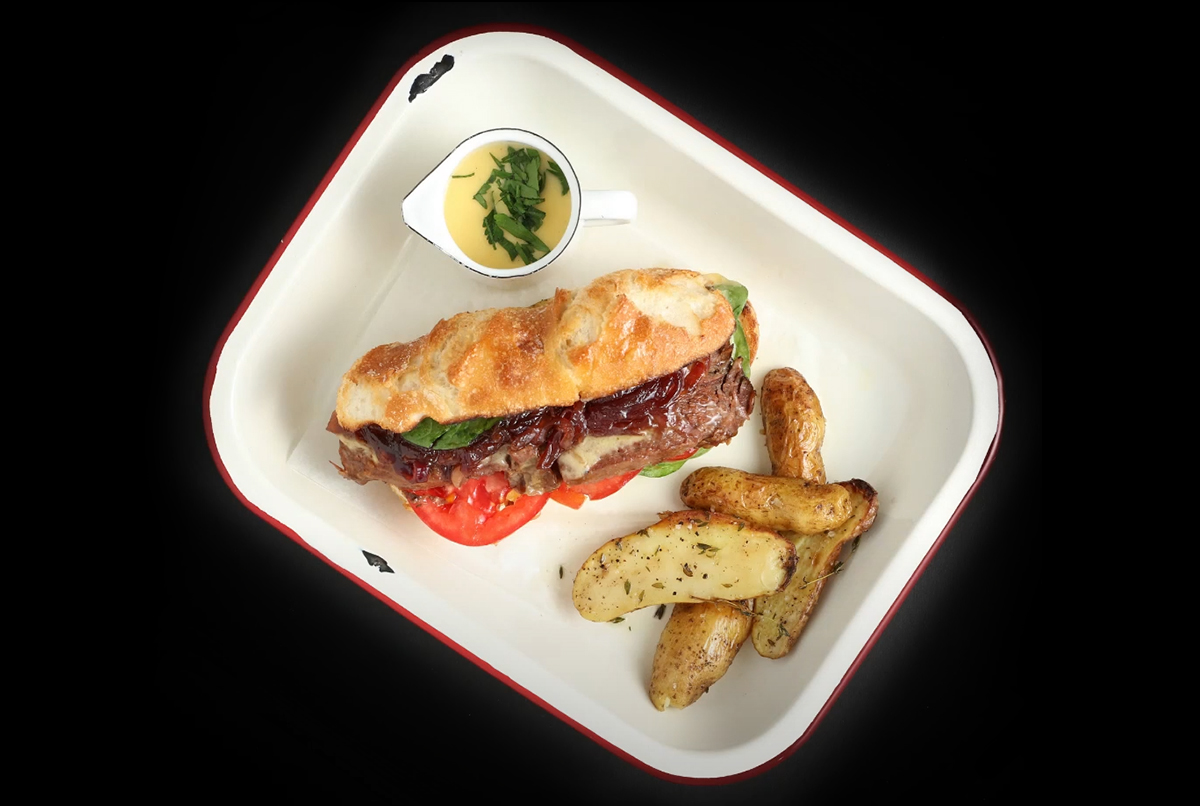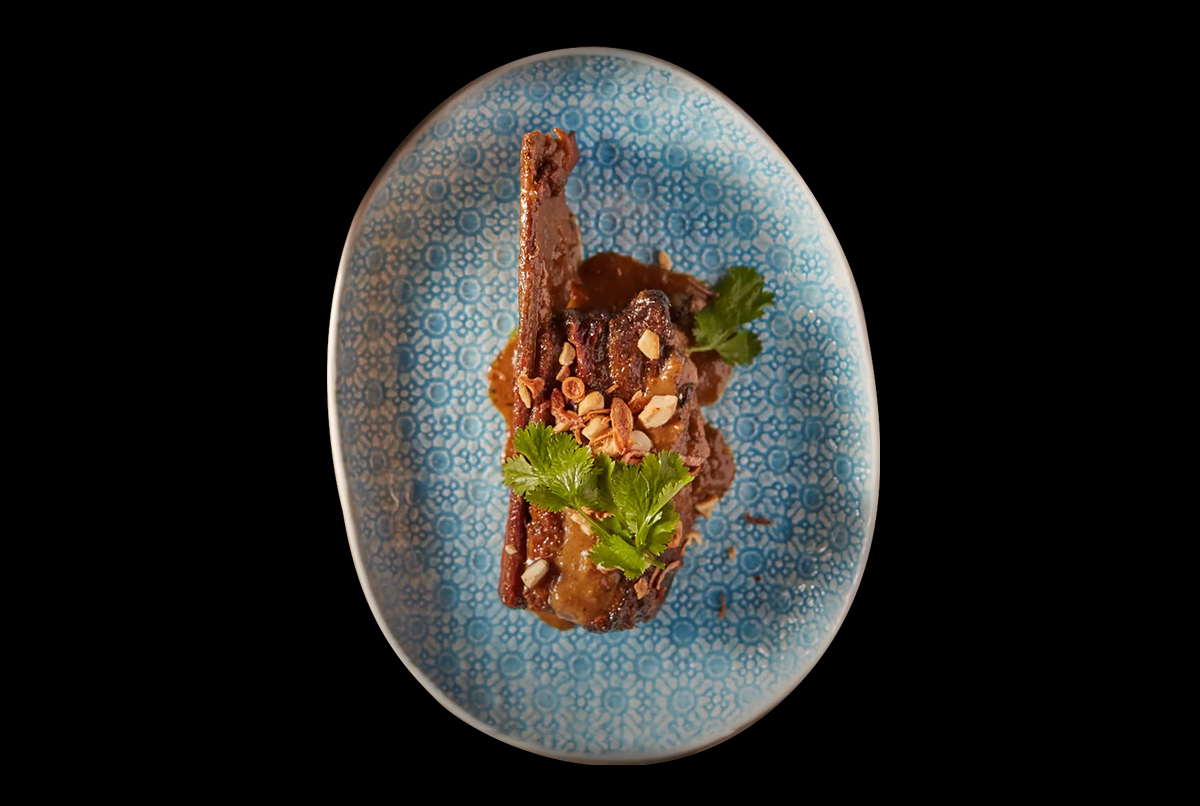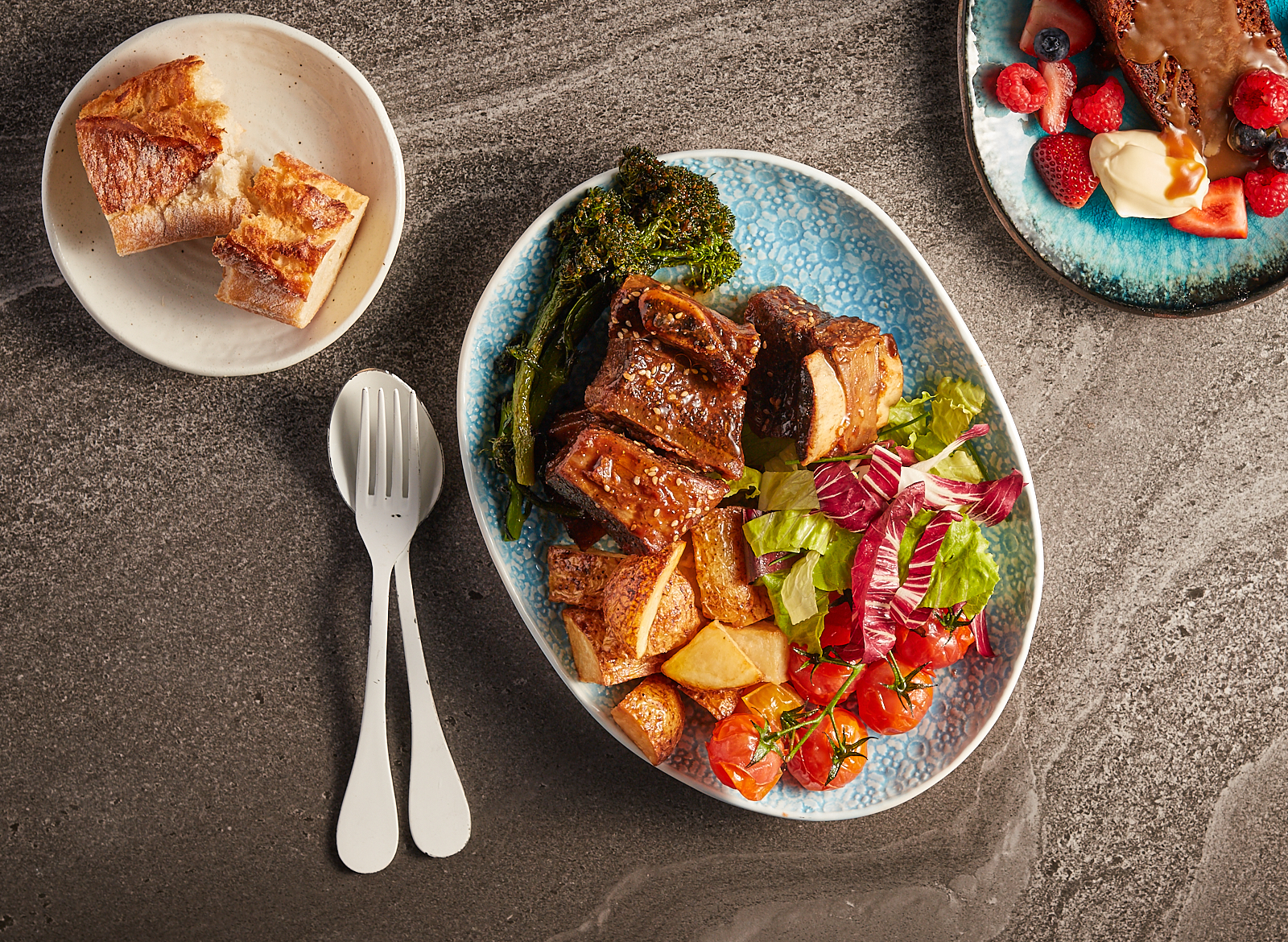When it comes down to it, a lot of comfort is about familiarity. Dad’s curry. Mum’s soup. The smell of something cooking away on the stove or in the oven at your nan’s house when you’re a kid, or the things you ordered at those first restaurants you visited with the family.
There’s certainly more than a few Australians today who get a bit misty-eyed thinking about the heyday of the prawn cocktail and the steak Diane because they were there for it, living in that time and place. But what about the familiarity of dishes that didn’t get cooked in your house, or the other places your family went to eat? How do you explain their hold on the public imagination?
The Beef Wellington at Rothwell’s Bar & Grill in Brisbane is a case in point. It’s a dish of British/French origin that has been around for at least a hundred years. Why exactly is it enjoying an unlikely renaissance right now at the hottest restaurant in the humid, subtropical climes of the Queensland capital?
For Ben Russell, there’s no mystery to its success: it’s about quality and it’s about deliciousness. A chef who has worked right across the spectrum of the familiar and the unfamiliar in his life in restaurant kitchens, Russell takes the view that the magic of dishes like Beef Wellington lies in taking combinations of ingredients and techniques that have stood the test of time, and honouring them with cooking that is all about quality produce and careful, honest preparation.
"The Beef Wellington at Rothwell’s Bar & Grill, Brisbane."
On his menu at Rothwell’s there’s a French onion dip among the appetisers, and an entrée that brings together prawn, avocado, lettuce, and cocktail sauce. There’s Caesar salad blessedly free of grilled chicken. There’s Martinis and Bloody Marys at the bar, there’s a seafood platter to share, and there’s trifle and madelines for dessert. But it’s about timeless elegance and not a retro trip.
“It’s not about trickery here,” says Russell, “you know what you’re in for.” There’s no side-eye, no riff or remix – the bat is played straight, and the result is dishes that surprise and delight with their freshness and immediacy.
A beautifully lit room, with lots of marble, big chandeliers, dark-green leather booths and well-chosen jazz, makes for a fitting backdrop. With Dan Clark, the operator behind 1889 Enoteca and one of Australia’s savviest wine importers, backing the place, the food is complemented by a list rich in treasures – 18-year-old Krug and JJ Prum riesling on by the glass, magnums and jeroboams of Gravner and Cornelissen, and a sea of Burgundy.
The thing about classics is that they’re classics for a reason. “They may not always be prepared in the best possible way from the finest possible ingredients but it’s easy to understand their appeal,” write Simon Hopkinson and Lindsay Bareham in their book, The Prawn Cocktail Years. “If one bothers to prepare these and other dishes that predate the whim of fashion in food then it is a revelation how good they can be.”
"Rothwell’s Beef Wellington"
Which brings us, of course, to Ben Russell’s Beef Wellington. Here’s how he does it.
First, the beef fillet. Russell goes grain-fed because he thinks it’s firmer and holds up a little better in the way it cooks in the Wellington, which essentially steams inside the pastry. He sears the beef in a hot pan, brushing it liberally with Dijon mustard.
Next comes the mushroom duxelles – rather than slicing and pan-frying the mushrooms in batches, Russell roasts them off whole in a pot to cook all the water out of them and to intensify their flavour, then blends them and presses them for a couple of hours to squeeze out any remaining moisture.
Then the crêpes: flour, eggs, milk and a little bit of beurre noisette. He lays a crêpe out on the bench, layers on about a centimetre of the mushrooms, then the beef fillet. It’s rolled, wrapped in clingfilm and goes into the fridge for a couple of hours to set before he wraps it in a layer of butter puff pastry, egg-washes it, and then adds another layer of lattice pastry, and more egg wash.
Then it goes into the Rational at 200 degrees till it hits an internal temperature of 35 degrees. Wrapped as it is in pastry, the meat comes up to a nice medium rare as it rests. The thickness of the pastry is the tricky part, Russell says: if it’s too thick, it won’t cook through before the beef is done.
It’s served with a red wine sauce – red wine and port reduced with lots of shallots and thyme on a veal-stock base.
Ben Russell
Ben Russell grew up in Burnie in the northwest of Tasmania. His first cooking job was at 18 at the fabled Jimmy Watson’s on Lygon Street in Melbourne, a third-generation business with a focus on wine. It was his next job, though, that made him the chef he is today.
"Ben Russell at Rothwell’s Bar & Grill."
“Six double shifts a week was our roster, so 14 hours a day, six days a week,” says Russell. The kitchen was not well equipped – at first it didn’t even have a coolroom. “We’d buy in everything every day, get there in the morning and crack on, making everything fresh every day from scratch, no room for error. If something went wrong, there was no back-up plan.” As intense as it was, he says, it was also what he’d been searching for.
“I was looking for something that was all-consuming. There was no time for anything outside that job.” It was unbelievably gruelling, but, looking back, he says, it crammed 10 years’ worth of learning into just three years.


